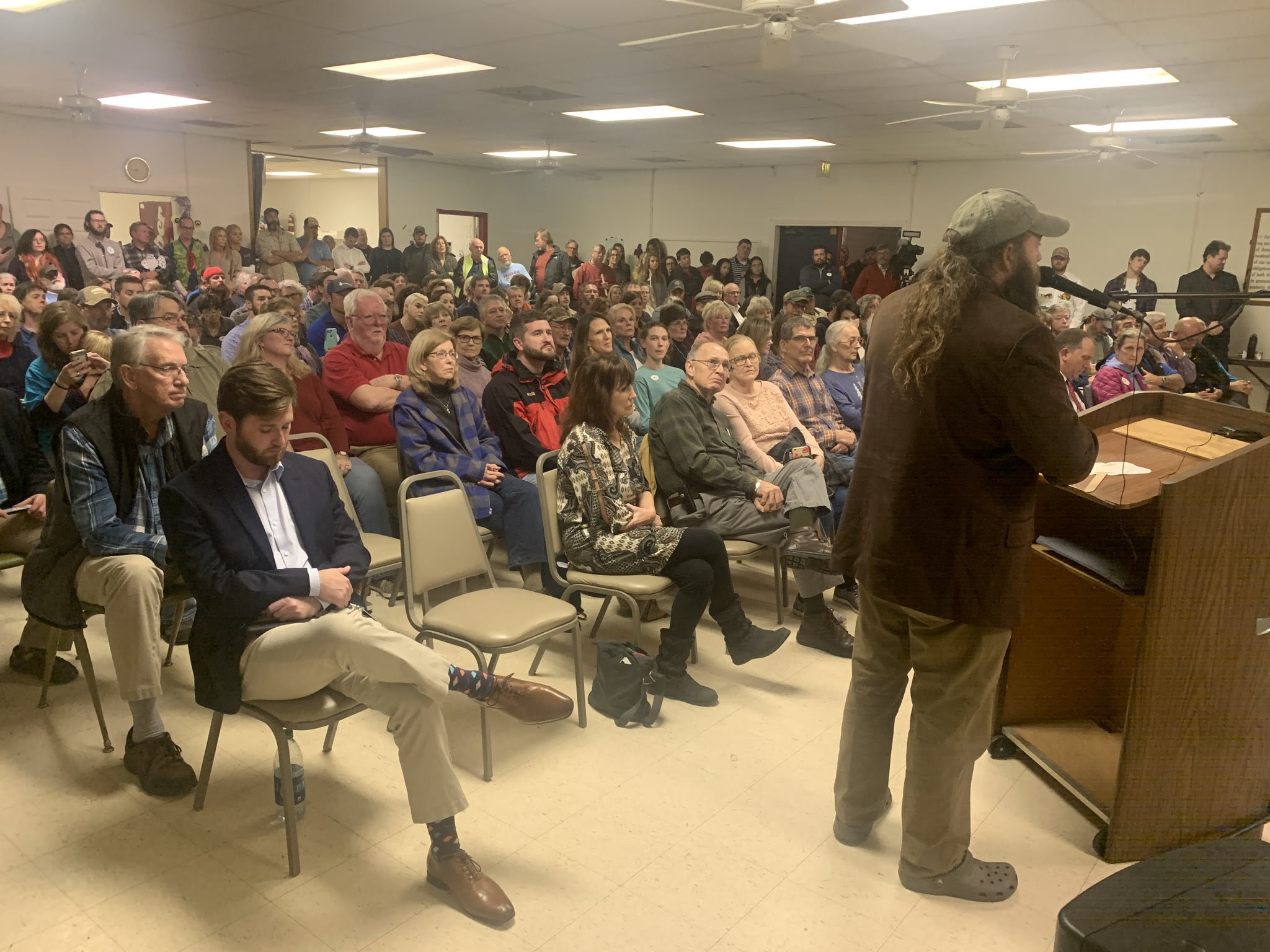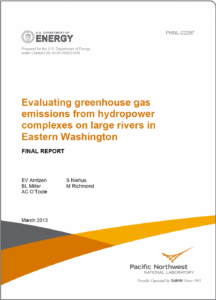Summer Policy Update
SUMMER POLICY UPDATES
 Greetings from the “new” Policy and Advocacy Director at Alabama Rivers Alliance! My name is Jack West, and I started this exciting new chapter right before COVID-19 took hold, so I haven’t yet met as many of you in person as I would like to, but I’m thrilled to be on board.
Greetings from the “new” Policy and Advocacy Director at Alabama Rivers Alliance! My name is Jack West, and I started this exciting new chapter right before COVID-19 took hold, so I haven’t yet met as many of you in person as I would like to, but I’m thrilled to be on board.
The spring and early summer of 2020 have been a time like no other, but our work defending Alabama’s rivers and streams continues, despite the global pandemic.
Please take a moment and read our latest Policy Update below. You’ll see how Alabama Rivers Alliance and our partners have been working to #DefendRivers and ensure Clean Water for All throughout Alabama and beyond over the past few months.
STATE LEGISLATIVE & POLICY UPDATES:
CHALLENGING ADEM’S UNSOUND BIOSOLIDS REGULATIONS
In February, the Alabama Environmental Management Commission (EMC) approved regulations allowing the land application of biosolids (a term generally understood to mean the sludge from wastewater treatment plants). Complaints from Alabama residents about this practice and the unbearable odors and environmental harms associated with it are piling up with ADEM.
While we believe regulation and oversight of this practice is sorely needed, the adopted regulations are flawed in many respects and allow for industrial byproducts to be included in the definition of biosolids. This means untested industrial waste containing toxic chemicals can be sprayed over agricultural land and runoff into nearby waterways under this regulatory structure.
The Alabama Rivers Alliance has joined the legal challenge to these regulations brought by Black Warrior Riverkeeper and the Southern Environmental Law Center seeking to improve these regulations and safeguard our waters. We are also creating a documentary film about this issue as part of our 2020 Southern Exposure film fellowship program and can’t wait to share it with you this fall!
ADEM MOVES FORWARD WITH COAL ASH PERMITTING PROGRAM
ADEM held a hearing last month regarding the state’s coal ash permitting program, which the agency is changing to match the new federal rules by removing most of the “flexibilities” provided for in the 2015 federal rules. Alabama Rivers Alliance, Coosa Riverkeeper, and SELC previously submitted comments on this issue, encouraging ADEM to strengthen its coal ash rules. At the hearing, SELC presented testimony recommending ADEM make the rules more protective of human and environmental health, which ADEM has the authority to do.
SPEAKING OF COAL ASH …
Alabama Po wer held in-person PUBLIC meetings over the last two weeks regarding its plans to cap-in-place its coal ash pits, despite the global pandemic and a lack of sufficient public notice. More than 2,000 concerned Alabamians signed a petition telling Alabama Power to keep the “public” in PUBLIC meetings. We supported that petition, along with our partners at Black Warrior Riverkeeper, Coosa Riverkeeper, Gasp, Mobile Baykeeper, Sierra Club Mobile Bay Group, and Southern Environmental Law Center.
wer held in-person PUBLIC meetings over the last two weeks regarding its plans to cap-in-place its coal ash pits, despite the global pandemic and a lack of sufficient public notice. More than 2,000 concerned Alabamians signed a petition telling Alabama Power to keep the “public” in PUBLIC meetings. We supported that petition, along with our partners at Black Warrior Riverkeeper, Coosa Riverkeeper, Gasp, Mobile Baykeeper, Sierra Club Mobile Bay Group, and Southern Environmental Law Center.
Read about the July 6 public meeting from Coosa Riverkeeper.
Learn more about coal ash problems in Alabama at AlabamaCoalAsh.org.
Watch our 2018 Southern Exposure film, Ashes to Ashes, by clicking here.
FERC RELICENSING OF HARRIS DAM ON THE TALLAPOOSA
Harris Dam, the most upstream dam on the Tallapoosa River owned by Alabama Power, continues to go through the Federal Energy Regulatory Commission’s (FERC) relicensing process. Alabama Power submitted many of the initial study reports required by FERC the other month, and we recently filed comments on those draft reports with FERC. Alabama Rivers Alliance remains engaged in stakeholder meetings as part of the relicensing and will work to improve conditions for ecological health and recreation along this stretch of the river.
If you live on or use the Tallapoosa River around Lake Wedowee or downstream of Harris Dam to Horseshoe Bend and would like to learn more about the relicensing and how you can be involved, please contact us. You can learn more about the status of the relicensing by clicking here.
“DRONE BILL” (HB 36/SB 45)
This legislation, introduced back in February, sought to restrict the ability of the people of Alabama to protest and demonstrate around energy infrastructure, such as mines and oil and gas pipelines. It also attempted to prohibit the use of drones near such infrastructure, a practice used by many conservation organizations to identify sources of pollution. The Alabama Rivers Alliance worked actively with the Southern Environmental Law Center, Mobile Baykeeper, and other partners on this legislation. The bill passed the Senate with an amendment that essentially removed any restrictions around operating drones near energy infrastructure. The full bill was not taken up by the House due to the interruption of COVID-19. Though this damaging bill was thankfully not signed into law, it could resurface, and we will be watching.
Alabama to protest and demonstrate around energy infrastructure, such as mines and oil and gas pipelines. It also attempted to prohibit the use of drones near such infrastructure, a practice used by many conservation organizations to identify sources of pollution. The Alabama Rivers Alliance worked actively with the Southern Environmental Law Center, Mobile Baykeeper, and other partners on this legislation. The bill passed the Senate with an amendment that essentially removed any restrictions around operating drones near energy infrastructure. The full bill was not taken up by the House due to the interruption of COVID-19. Though this damaging bill was thankfully not signed into law, it could resurface, and we will be watching.
TYSON PERMIT ON LOCUST FORK
Hu ndreds of individuals, Black Warrior Riverkeeper, Friends of the Locust Fork River, Southern Environmental Law Center, and Alabama Rivers Alliance all submitted comments on the permit for Tyson’s Blountsville facility, which resulted in an improved permit with stricter pollution limits. Read all about the background of the Tyson plant and the citizen action that got ADEM’s attention by clicking here.
ndreds of individuals, Black Warrior Riverkeeper, Friends of the Locust Fork River, Southern Environmental Law Center, and Alabama Rivers Alliance all submitted comments on the permit for Tyson’s Blountsville facility, which resulted in an improved permit with stricter pollution limits. Read all about the background of the Tyson plant and the citizen action that got ADEM’s attention by clicking here.
FENDING OFF THE OPELIKA QUARRY
Opelika and Auburn community members and leaders worked together to successfully protect the drinking water for their community from an ill-advised granite quarry that threatened the Saugahatchee watershed. As a result of quick citizen action and local leadership, CreekWood Resources, LLC has withdrawn its permits for the proposed quarry, and the City of Opelika has annexed the 1,250 acres where the quarry was to be developed to prevent future threats. Click here to read more about this great win!
FEDERAL POLICY UPDATES:
The Alabama Rivers Alliance participates in multiple national coalitions, including River Network, the Clean Water Network, and the Clean Water for All Campaign. We sign on to letters of support and action alerts on the issues that our national partners recommend and we pass along these opportunities to other Alabama groups. Many of these updates are from our national partners.
MOVING FORWARD ACT
This massive transportation bill (H.R. 2) contains provisions that help address the pressing need for additional wastewater and stormwater infrastructure funding by significantly increasing the amount of federal assistance made available to states and communities through the Clean Water State Revolving Fund (CWSRF). The bill’s proposed CWSRF authorization of $8 billion annually would quadruple current funding levels and help to make progress on our nation’s substantial water infrastructure backlog. The bill also reauthorizes the Drinking Water State Revolving Fund at increased levels and gives direct assistance to disadvantaged communities and communities suffering from PFAS contamination.
H.R. 2 passed the United States House of Representatives on July 1. We would like to thank Representative Terri Sewell for supporting this important legislation. Other US Representatives from Alabama Bradley Byrne, Mo Brooks, Mike Rogers, Robert Aderholt, and Gary Palmer voted against the bill. Representative Martha Roby did not vote on it. You can read more about the water provisions of this bill from our partners at the Natural Resource Defense Council by clicking here.
CLEAN WATER FOR ALL ACT
If passed, the Clean Water for All Act introduced by Representatives DeFazio (Oregon) and Napolitano (California) would effectively repeal the Trump Administration’s Dirty Water Rule, which was a devastating rollback of protections provided by the Clean Water Act. As the chairs of the committee and subcommittee with jurisdiction over the Clean Water Act (respectively), Reps. DeFazio and Napolitano were well positioned to introduce the bill and circulated a ‘Dear Colleague’ letter.
Click here to watch our 2019 Southern Exposure film, Waters of the US, to learn more.
WATER RESOURCES DEVELOPMENT ACT
The Senate Environment and Public Works Committee recently passed two bills out of Committee–America’s Water Infrastructure Act of 2020 (AWIA) and the Drinking Water Infrastructure Act of 2020 (DWIA). These bills address a wide range of infrastructure and policy provisions and include increased funding for the Clean Water and Drinking Water State Revolving Funds, targeted funding to address PFAS and lead, as well as funding for many Army Corps of Engineers projects.
SUPREME COURT RULES 6-3 IN FAVOR OF CLEAN WATER
In April, the Supreme Court issued its opinion in the County of Maui v. Hawaiʻi Wildlife Fund case. The Supreme Court sided with clean water advocates and concluded that point source discharges to navigable waters through groundwater are regulated under the Clean Water Act. You can read more and get all the details from Earthjustice by clicking here.
GREAT AMERICAN OUTDOORS ACT
In a rare show of bipartisanship, the US Senate passed the Great American Outdoors Act to fund delayed maintenance projects in our national parks and on public lands. Federal public lands are suffering from $20 billion in deferred maintenance for projects like roads, bridges, and crumbling infrastructure. If passed by the House and signed by the President (who has indicated he would sign such a bill), the new legislation will also permanently authorize the Land and Water Conservation Fund and fully fund it at $900 million per year to conserve and protect our national parks and federal lands through land acquisitions and facility construction, such as building bike paths and boat ramps. Senator Doug Jones co-sponsored the legislation. Senator Richard Shelby voted against it. Our partners at The Nature Conservancy and Conservation Alabama supported the legislation.
Click here to watch yesterday’s Water is Life: In the Great Outdoors to hear Mitchell Reid (The Nature Conservancy in Alabama) talk about the Act.
ATLANTIC COAST PIPELINE – STOPPED!
Earlier this week, Dominion Energy and Duke Energy announced they are cancelling the heavily opposed Atlantic Coast Pipeline project. Our partners at SELC have worked to stop this project for six years and said in a press release: “This is a victory for all the communities that were in the path of this risky and unnecessary project. The Atlantic Coast Pipeline was ill-conceived from the start. After years of opposition, legal defeats, and threats to the environment, SELC is relieved to see Duke and Dominion make the right decision to walk away from it.” To read more, click here.
HOW TO TAKE ACTION NOW!
ADEM DIRECTOR LANCE LEFLEUR’S JOB PERFORMANCE REVIEW
The Alabama Environmental Management Commission is soliciting written comments from the public concerning ADEM Director Lance LeFleur’s job performance as part of its annual evaluation. The comment period is open now and closes July 31, 2020.
You can find more information about how and where to submit comments here.
We urge everyone with an opinion of Director LeFleur or ADEM—and especially those who have been personally affected by environmental harm this year—to file comments with the Commission.
While there are still no official criteria to gauge the Director’s performance (despite ARA’s multiple requests for criteria to guide public comments), we recommend basing your comments on ADEM’s legal duties and responsibilities. ADEM’s purpose is “to respond in an efficient, comprehensive and coordinated manner to environmental problems, and thereby assure for all citizens of the state a safe, healthful and productive environment.”
As director of ADEM, LeFleur is responsible for advancing the agency’s duties, which include providing for timely resolution of permitting actions, improving services to the citizens of the state, protecting human health and safety, and ensuring that the government is responsive to the needs of the people.
Click here to submit comments now.
LEARN ABOUT OTHER STATEWIDE POLICY ISSUES
At the Alabama Rivers Alliance, we are continuing to learn more every day about how our environmental work intersects with other advocacy work to create a more just and equitable society for all Alabamians. To learn about other statewide policy issues impacting the people of Alabama, and how you can be involved, click here to check out Town Hall Tuesdays, Alabama Arise’s statewide online summer listening sessions.
SUPPORT ALABAMA RIVERS ALLIANCE
Support our policy and advocacy work by joining as a member, making a donation, taking actions when asked and sharing our updates with your family and friends. Thank you for caring about Alabama’s rivers and streams!
Water Is Life,
Jack West
Policy & Advocacy Director
Alabama Rivers Alliance
PS. Have you checked out our cool new Zoom Talk series? Click here to read all about Water is Life, our new Zoom Talk series. Up next we discuss the intersection of climate and justice with Gulf Coast Center for Law & Policy and Gasp.


